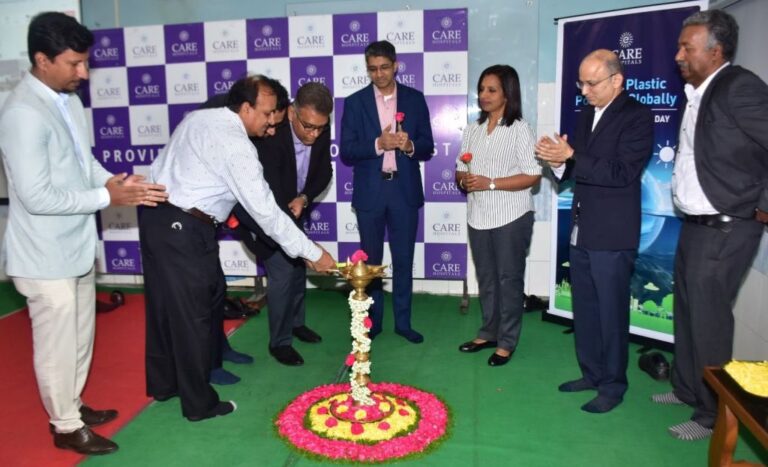
- Some city prime areas see lower price growth than peripheries b/w 2019 & Q3 2024
- NCR’s peripheral Noida Expressway saw 66% price growth; prime area Raj Nagar Ext. saw 55% rise
- MMR’s peripheral Panvel saw 58% price appreciation, prime Worli saw 37% growth; Lower Parel grew 49% but periphery Virar saw 58%
- Pune’s prime area Wakad recorded 27% price growth while periphery Wagholi grew 37%
- In Hyderabad, prime areas Gachibowli & Kondapur outshine peripheries like Kompalli, LB Nagar & Tellapur
In an interesting shift, some outlying areas have seen higher price growth over the past six years than many prime locations in the top 7 cities, finds latest ANAROCK research. To illustrate, Bengaluru’s peripheral area Gunjur saw average residential price take a significant 69% jump – it rose from INR 5,030 per sq. ft. in 2019 to INR 8,500 per sq. ft. in Q3 2024. Prime area Thannisandra Main Road, on the other hand, saw a 62% average price growth in this period – from INR 5,175 per sq. ft. to INR 8,400 per sq. ft. in Q3 2024.

Santhosh Kumar, Vice Chairman – ANAROCK Group, says, “In NCR’s peripheral Noida Expressway, average residential prices rose 66% in last six years – from INR 5,075 per sq. ft. in 2019 to INR 8,400 per sq. ft. in Q3 2024. Prime area Raj Nagar Extension saw 55% growth in this period – from INR 3,260 per sq. ft. in 2019 to INR 5,050 per sq. ft in Q3 2024. However, this is by no means a uniform trend. For instance, the prime area of Dwarka Expressway in Delhi saw a significant 93% jump in average residential prices – from INR 5,359 per sq. ft. in 2019 to INR 10,350 per sq. ft. in Q3 2024.”
Overall, average residential prices have been rising across cities in the last six years. Many peripheral areas in the top cities outshone prime areas because their scope of price appreciation was higher than in prime areas; the latter already saw appreciable price growth in previous years. Also, improved connectivity and overall development in many peripheral areas have boosted their liveability.
“The last few years have seen several luxury projects launched in these peripheries to meet demand,” says Kumar. “Inevitably, average housing prices rose there. With sufficient land available in the peripheries, developers have zeroed in on them to launching large state-of-art projects there. Improved connectivity has made it feasible for buyers to live in larger societies with generous green open spaces. This trend has become very prevalent after the COVID-19 pandemic.”
City-Wise Trends: Peripheries vs Prime Locations
|
City |
Category |
Micro Markets |
Avg. Residential Prices in INR/Sqft (2019) |
Avg. Residential Prices in INR/Sqft (Q3 2024) |
Price Change % (2019 Vs Q3 2024) |
|
Bengaluru |
Peripheral |
Gunjur |
5,030 |
8,500 |
69% |
|
Prime |
Thanisandra Main Road |
5,175 |
8,400 |
62% |
|
|
NCR |
Peripheral |
Noida Expressway |
5,075 |
8,400 |
66% |
|
Prime |
Raj Nagar Extension |
3,260 |
5,050 |
55% |
|
|
MMR |
Peripheral |
Panvel |
5,520 |
8,700 |
58% |
|
Prime |
Worli |
38,560 |
53,000 |
37% |
|
|
Pune |
Peripheral |
Wagholi |
4,820 |
6,600 |
37% |
|
Prime |
Wakad |
6,540 |
8,300 |
27% |
|
|
Kolkata |
Peripheral |
Madhyamgram |
3,000 |
4,300 |
43% |
|
Prime |
Joka |
3,415 |
5,150 |
51% |
|
|
Chennai |
Peripheral |
Navalur |
3,955 |
6,080 |
54% |
|
Prime |
Anna Nagar |
11,650 |
15,780 |
35% |
|
|
Hyderabad |
Peripheral |
Kompalli |
4,010 |
5,970 |
49% |
|
Prime |
Gachibowli |
4,775 |
8,900 |
86% |
Source: ANAROCK Research
- MMR’s peripheral area Panvel saw over 58% price appreciation in the last 6 years – from INR 5,520 per sq. ft. (2019) to INR 8,700 per sq. ft. (Q3 2024). Prime area Worli, on the other hand, saw 37% price growth in this period – from INR 38,560 per sq. ft. (2019) to nearly INR 53,000 per sq. ft. (Q3 2024). Similarly, prime area Lower Parel saw 49% growth, while periphery Virar saw 58% growth. In Lower Parel, avg. prices rose from INR 34,660 per sq. ft. (2019) to INR 51,660 per sq. ft. (Q3 2024). In Virar, prices rose from INR 4,440 per sq. ft. (2019) to INR 6,850 per sq. ft. (Q3 2024).
- Pune’s prime area Wakad recorded 27% price appreciation – from INR 6,530 per sq. ft. (2019) to INR 8,300 per sq. ft. (Q3 2024); periphery Wagholi saw 37% growth between 2019 and Q3 2024. Avg. prices there went from INR 4,820 per sq. ft. (2019) to INR 6,600 per sq. ft. (Q3 2024).
- Kolkata’s prime Joka saw prices rise 51% – from INR 3,415 per sq. ft. (2019) to INR 5,150 per sq. ft. (Q3 2024) while peripheral Madhyamgram and Behala saw prices appreciate by 43% and 35% respectively. Prime area Rajarhat saw prices grow by just 29% in the period.
- Chennai’s peripheral area Navalur saw prices grow by 54% in last 6 years – from INR 3,955 per sq. ft. (2019) to INR 6,080 per sq. ft. (Q3 2024). Meanwhile, prime areas like Anna Nagar and T Nagar saw prices appreciate 35% and 31% respectively in this period.
- Bengaluru’s peripheral area of Devanahalli also saw prices grow 49% in the last 6 years – from INR 4,982 per sq. ft. (2019) to INR 7,400 per sq. ft. (Q3 2024). Prime location Electronic City saw just 38% price growth in this period – from INR 4,658 per sq. ft. (2019) to INR 6,450 per sq. ft. (Q3 2024).
- In Hyderabad, prime areas Gachibowli and Kondapur continue to see higher price growth than most peripheral areas like Kompalli, LB Nagar and Tellapur. Gachibowli recorded 86% price growth in the last 6 years – from INR 4,775 per sq. ft. (2019) to INR 8,900 per sq. ft. (Q3 2024). Kondapur also recorded 86% price growth – from INR 4,620 per sq. ft. (2019) to INR 8,600 per sq. ft. (Q3 2024). These prime areas saw higher growth because their base prices were far lower than many of their counterparts in other cities. This boosted the scope for higher appreciation there.
- Likewise, NCR’s peripheral area Sohna saw price growth of 43% – from INR 4,120 per sq. ft. (2019) to INR 5,900 per sq. ft. (Q3 2024) while prime area New Gurugram saw prices appreciate by 59% in the same period.




